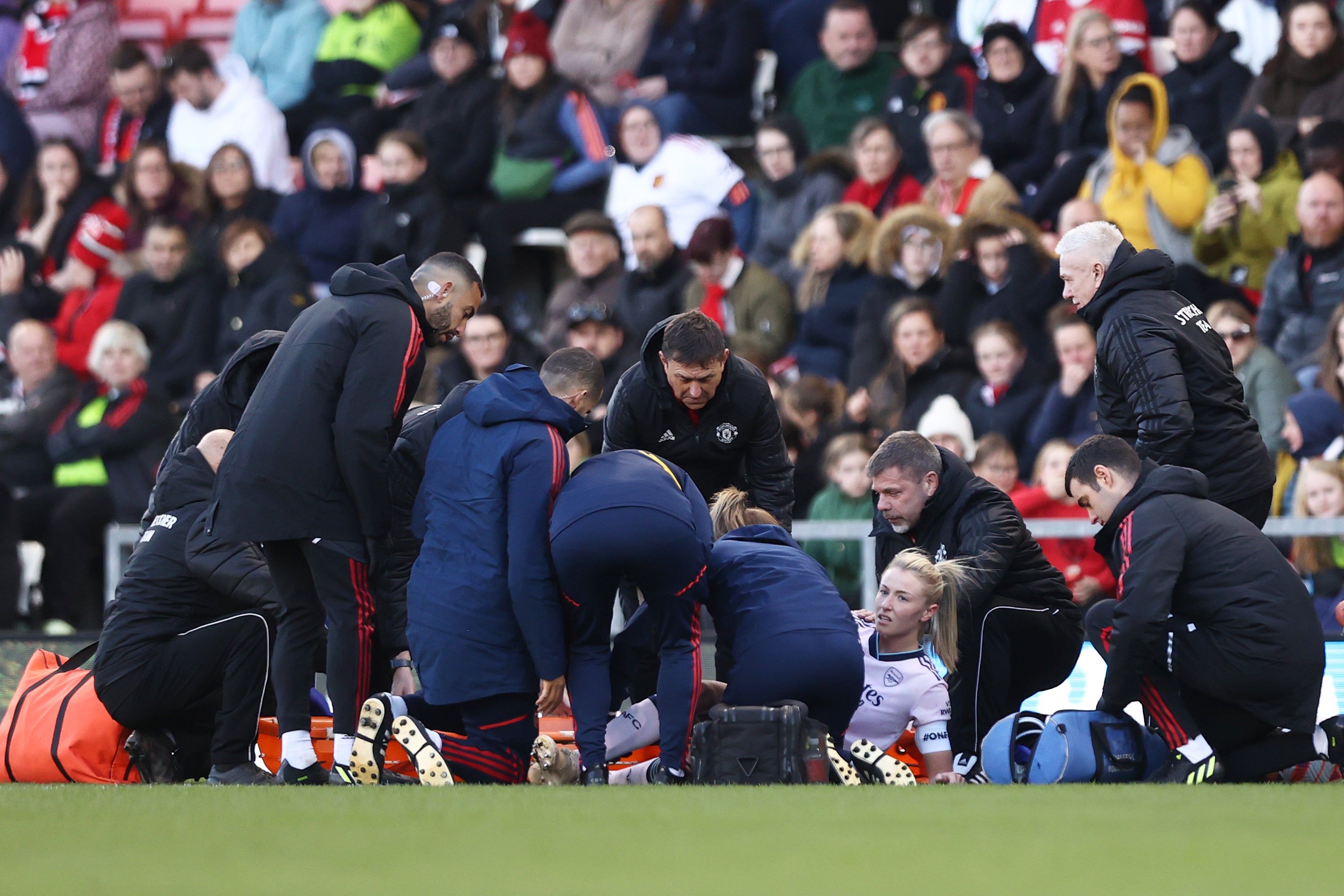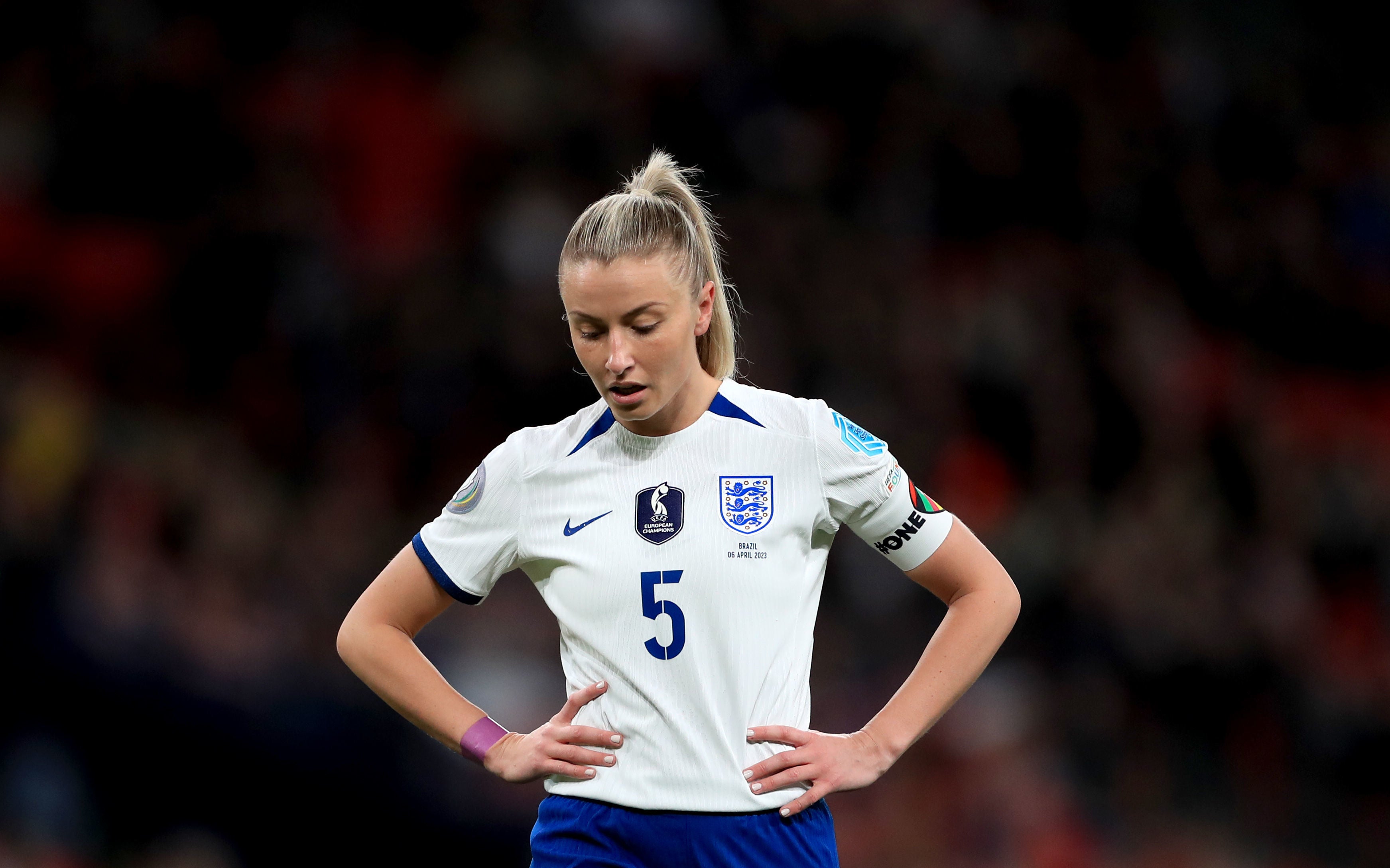
You feared the worst when Leah Williamson went down, and then the worst was confirmed. England’s captain will miss the Women’s World Cup after rupturing her anterior cruciate ligament, the scans revealing what those within the game have sadly become conditioned to expect. Williamson had collapsed over her right knee in the 12th minute of Arsenal’s match against Manchester United on Wednesday and her immediate reaction, as well as those around her as she hobbled down the tunnel, all but told you what had happened.
It is a devastating blow for Williamson and the Lionesses, but only one that those who are yet to wake up to the crisis hanging over this summer’s World Cup will be surprised by.
Williamson knew. “I had my tears and made my peace with it the night it happened,” she posted on Instagram shortly after the news broke. Yet there was a further line from the 26-year-old that emphasised where women’s football is three months away from the World Cup in Australia and New Zealand. “The noise around the situation is loud,” she said. “Ultimately, I think it’s just my time.”
Once the news sets in there will be anger that a dark pattern in the sport has continued. In women’s football, anterior cruciate ligament injuries continue to hit the sport’s biggest stars at a disproportionate rate to the men’s game. Women’s footballers are six times more likely to suffer a non-contact ACL injury than their male counterparts.
There will be the same calls for more research into why that is and how further injuries can be prevented, just like when Beth Mead ruptured her ACL in November, or when her Arsenal team-mate and Netherlands star Vivianne Miedema suffered the same injury the following month. There will be the same questions about scheduling and the inequalities facing women’s players, just like when the two-time Ballon d’Or winner Alexia Putellas missed last summer’s Euros, or when the previous winner Ada Hegerberg ruptured her ACL three years ago.
Those are just some of the best players in the world. Go down the Women’s Super League and there will be countless examples of players going to rehab or recently coming back from one. Perhaps one of the scariest truths of Williamson’s injury is that Arsenal and England were aware of the risks. The FA have studied the prevalence of ACL injuries in women’s football over the past four seasons, Arsenal lost Mead for the campaign just months ago, and yet the work to protect players - whether in specialised strength and conditioning, or the impact and tracking of players’ menstrual cycles - has shown that women’s football is still working behind an information gap and held back by a lack of research.
This needs to be the final wake-up call, as if the injuries to Mead or Putellas or Hegerberg weren’t already a dire enough warning for the game. The loss of Williamson from the World Cup, not just as a player and a captain but as a person, demands it.

Williamson will have plenty to say when she is ready. “Until I have the words to express my feelings properly I will struggle to verbalise them,” she said. It is just the worst news for a player who led England so brilliantly on and off the pitch at the Euros, who is now denied the dream of leading England into a World Cup. For the Lionesses, Williamson was the only outfielder who played in every minute of last summer’s Euros, where she brought calmness on the ball in defence, clarity in voicing England’s message and her understanding of the team’s wider role during the tournament.
Williamson’s injury also leaves Sarina Wiegman requiring a new centre-back partnership ahead of the World Cup, with Chelsea’s Millie Bright also currently out with a knee injury. The pair were part of the Lionesses’ spine during the Euros as Wiegman named an unchanged team in all six games and Williamson’s ability on the ball and reading of the game is almost impossible to replace. Suddenly, England do not appear anywhere near as stable. It’s hard to call them favourites now, either.

Arsenal, already decimated by injuries this season, will suffer too. The Gunners will look to advance to their first Women’s Champions League final in 16 years as they face Wolfsburg over the next two weekends, but Sunday’s first leg in Germany could be a sombre affair.
Ultimately, a player like Williamson is not just Arsenal and England’s loss. The World Cup has lost a star and a leader, and the game is running out of chances to show it is taking this crisis seriously enough.







